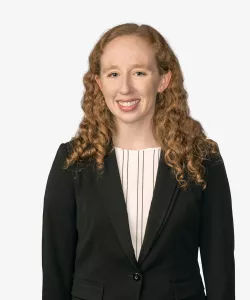Federal Circuit Holds That AI Cannot Be an “Inventor” Under the Patent Act - Only Humans Can Get Patents
On April 23, 2023, the US Supreme Court denied a petition for certiorari filed by Stephen Thaler, following the US Court of Appeals for the Federal Circuit’s finding that Thaler’s artificial intelligence system — Device for the Autonomous Bootstrapping of Unified Science (DABUS) – could not be considered an “inventor” under the Patent Act and thus patents could not be issued for the prototypes of a beverage holder and emergency light beacon created by DABUS.
Pointing to seminal cases like BedRoc Ltd.[1] and Bostock,[2] the Federal Circuit took a textualist approach, beginning and ending the analysis with the discussion of the statutory text.[3] Overall, the opinion articulated that the issue of whether an artificial intelligence system, such as DABUS, can be considered an inventor and thus be issued patents on prototypes it produces, boils down to the simple question of whether an inventor needs to be a human being. The simple answer is, according to the Federal Circuit, yes. The Federal Circuit’s rationale is not dissimilar to the Ninth Circuit’s ruling that monkeys cannot obtain copyright protection for photographs.[4] Similarly, the US Copyright Office will not register works produced by other than humans, specifically noting that works by the divine (including a song application authored by the Holy Spirit) are not copyrightable.[5]
By way of background, as stated in the Thaler opinion, the Patent Act expressly provides that inventors are “individuals,” though it does not provide a corresponding definition. That said, there is ample precedent on the issue of what constitutes an “individual,” and such precedent was sufficient in convincing the Federal Circuit that the Patent Act supports the conclusion that “individuals” are human beings, and non-humans, such as artificial intelligence programs, cannot be considered individuals, and thus cannot be deemed inventors.
In its statutory interpretation, the Federal Circuit emphasized a litany of Patent Act examples that lend themselves to a holding that only human beings can be considered inventors. One example includes the Patent Act’s use of personal pronouns, i.e., “himself” and “herself” to refer to an “individual.” The opinion also highlights the Patent Act’s requirement that inventors, unless deceased, incapacitated, or unavailable, submit an oath or declaration stating that they believe that they are the original inventor.
Crucially, Thaler himself, purportedly on DABUS’s behalf, executed the declarations required by the Patent Act. Despite Thaler’s purposivism-minded arguments, including that the term “inventor” should be interpreted with attention to the broader context of the statute and that permitting artificial intelligence programs to be inventors would support the constitutional purpose of patents — promoting the progress of science and the useful arts – the Federal Circuit closely adhered to the Patent Act’s plain meaning, holding that artificial intelligence cannot be an inventor.
In addition to the patent applications Thaler filed in the United States (which were rejected by the USPTO), he also applied for DABUS patents in countries such as the United Kingdom, Germany, South Africa, and Australia. Thus far, Thaler’s application to register DABUS as an inventor was allowed in South Africa,[6] and the UK Supreme Court recently heard arguments on this issue.
The USPTO is seeking public comments until May 15, 2023, on the topic of inventorship and AI.[7]
Our team will be monitoring the United Kingdom action and actions similar to Thaler as they unfold as well as the public comment process at the USPTO. Please feel free to contact your ArentFox Schiff LLP attorney or one of the authors with any questions or concerns.
[1] BedRoc Ltd. v. United States, 541 U.S. 176, 183 (2004).
[2] Bostock v. Clayton Cnty., 140 S. Ct. 1731, 1749 (2020).
[3] Thaler v. Vidal, No. 22-919, 2023 WL 3046164 (US Apr. 24, 2023); Thaler v. Vidal, 43 F.4th 1207 (Fed. Cir. 2022).
[4] Naruto v. Slater, 888 F.3d 418, 426 (9th Cir. 2018) (“[M]ore broadly, animals other than humans — lack statutory standing to sue under the Copyright Act.”).
[5] See U.S. Copyright Office, Compendium of U.S. Copyright Office Practices § 101 (3d ed. 2021).
[6] Sam Tobin, UK Supreme Court hears landmark patent case over AI “inventor”, Reuters (Mar. 2, 2023), https://www.reuters.com/technology/uk-supreme-court-hears-landmark-pate….
[7] Requests for Comments on USPTO Initiatives To Ensure the Robustness and Reliability of Patent Rights, 88 Fed. Reg. 30, 9492 (Feb. 14, 2023).
Contacts
- Related Industries


